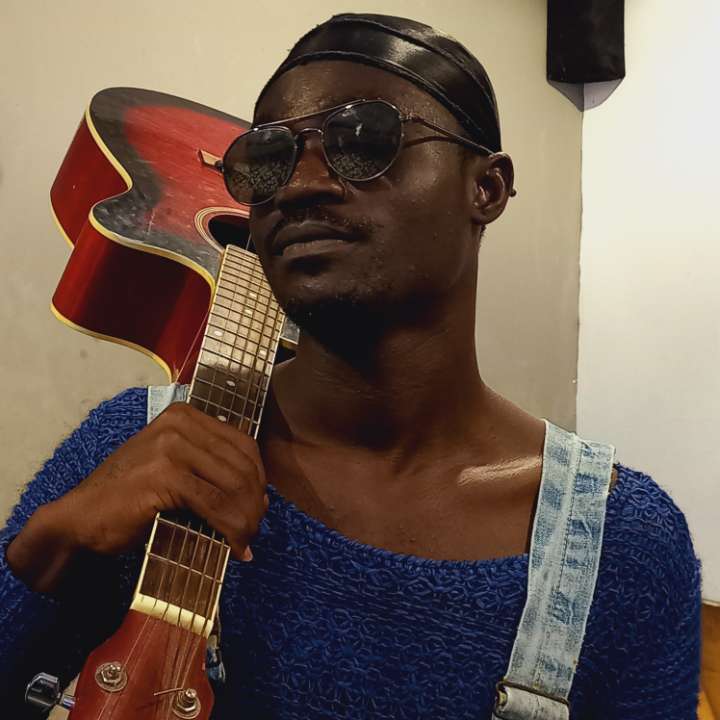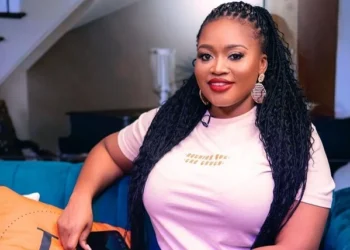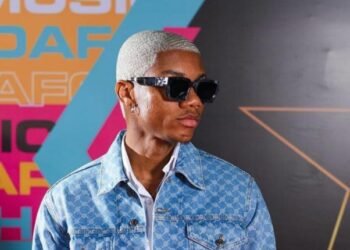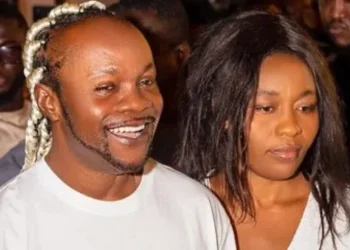In recent years, a noticeable trend has emerged among male content creators across various platforms, where individuals adopt cross-dressing as a form of expression, entertainment, or performance art.
This phenomenon has sparked a mixture of admiration and condemnation, raising questions about gender norms, cultural appropriation, and the implications of such expressions in a rapidly evolving digital landscape.
The National Commission on Culture (NCC) voiced strong disapproval over the rising phenomenon of cross-dressing among male content creators in Ghana, condemning it as a blatant affront to the nation’s cultural and moral foundations.
The Commission is alarmed by the rising number of male influencers, who have publicly embraced female attire in the name of content creation.
Deputy Executive Director of NCC, Dr. Richardson Commey Fio, expressed deep concern about what he described as a disturbing trend. He said it was troubling to see individuals in the name of content creation promote crossdressing, a practice he said was strongly disapproved of by Ghanaian society.
In an exclusive interview with the Vaultz News, Ghanaian artist, Bismark Paapa Amponsah, popularly known as MIB in the entertainment industry, revealed that the issue of cross-dressing amongst male content creators has been seriously frowned upon by many Ghanaians and even other neighbouring countries like Nigeria.
“As a Ghanaian, born and raised an Ashanti, I would never have thought there would come a day where men old enough to be our big brothers and fathers would wear clothes or costumes to portray or behave like women. In a typical African society, not Ghana alone, and I repeat, in a typical African society, men are expected to be men and women to be women.
“The current concerns about cross-dressing is actually not about the content creation these male content creators put online but what that it might imply or create room for is what the Ghanaian society is afraid of.”
MIB
Cross-dressing, traditionally understood as the act of wearing clothing typically associated with the opposite gender, has found a new platform in the world of online content creation.
From YouTube to TikTok, male creators often don women’s clothing, makeup, and accessories, utilizing humor, satire, or artistic expression to engage their audiences. This trend has roots in various cultural movements, including drag culture, which has long celebrated gender fluidity and performance.
According to MIB, theatre or performance art, cross-dressing could be used for educational purposes as some cross-dressers have established.
“But let’s face the truth here, of what importance do you think our children and the youth are gaining from watching contents from these male content creators who cross-dress today on the internet? Everyone creates content today for the likes, subscriptions and all the goodies that comes with monetising your content and social media accounts.
“Cross-dressing isn’t part of our culture and I know many would disagree with me on this. It’s a western disease that needs to taken seriously before it corrupts the minds of the youth. This practice actually undermines our traditional values and norms as Ghanaians.”
MIB
Criticism and Condemnation

Despite the positive aspects associated with cross-dressing among male content creators, the trend has not been without its critics.
Some critics argue that male content creators engaging in cross-dressing inadvertently perpetuate stereotypes or appropriate aspects of marginalized communities, particularly those of transgender individuals and drag performers.
MIB noted that there are lots of arguments raised against this phenomenon, adding that the practice undermines traditional Ghanaian culture, values and norms.
He further stated that Cross-dressing shouldn’t be allowed in the name of freedom and rights of people to be explored because Ghanaians are trying to add the foreign way of life which is against the natural order of things.
“For instance, if there should be a content about a traditional Ghanaian story that would necessitate for a male actor to dress up in a female costume for educational purposes and I repeat again, educational purposes, I see no harm in this. But we can all attest to the fact that it’s actually the opposite of this happening right now.
“Cross-dressing contents on the internet have nothing in common with our traditional values and it’s rather tearing down years of serious traditional values, norms and morality, discipline and Ghanaian traditional heritage which were instilled in us by our ancestors, families and parents over the years.”
MIB
The artist maintained that no matter the measures put in place, nothing is going to change because the internet and technology helps to amplify the growing trend.
“We’ve been clinically brainwashed through these same media and internet, so this is actually like an endless loop with no hope. But we can make a difference,” he added.
He advised that Ghanaians must change their ways of thinking, stating that the Ghanaian culture, values, and heritage shouldn’t be thought of as superstitious, evil or a taboo.
“As true Ghanaians we should fight to hold our way of life. The Western world is not only taking away our natural resources,but they are also trying tirelessly to strip us off everything we have including what we know and what we have been taught and passed on from generations to the next by our ancestors.”
MIB
Bismark is of the view that Ghanaians and even Africans, tend to assimilate so much of the western culture that is practically frowned upon.
He expressed that Africans have adopted a lifestyle all encapsulated in the name of human rights and freedom, which is actually a thing of the west.
“People who cross-dress with a hidden agenda or for whatever unreasonable and non-beneficial reason should be dealt with accordingly by the traditional society of our country and not by any legal system, in my opinion,” MIB admonished.
He added, “We are where we are today as a country because we have failed to see the harm we are causing ourselves. We have been given the tools for our own destruction and redemption.”
As society continues to grapple with issues of gender identity and expression, creators and audiences alike must engage in thoughtful dialogue, ensuring that the conversation surrounding cross-dressing is respectful, inclusive, and informed by the diverse experiences of all individuals involved.
Ultimately, the future of this trend will depend on the willingness of content creators to listen, learn, and adapt, paving the way for a more inclusive and understanding digital landscape.
READ ALSO: Political Scientist Underscores Impact of Manifestos on Voters






















